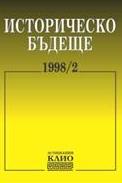История и университетска традиция
History and the University Tradition
Author(s): Anna KochankovaSubject(s): History
Published by: Асоциация Клио
Keywords: University tradition; history; education
Summary/Abstract: The tradition of teaching history at a university level is closely linked with the emergence and development of universities as autonomous institutions with their own regulations and academic standards. The fifteenth and sixteenth centuries bore witness to certain changes in the ways history was taught at European universities: gradually, history became separated from theology and became an academic discipline in its own right. These changes were provoked by several factors. In the first place, the accumulation of an intellectual product, which was created outside the universities, presented a challenge to the existing university patterns of education. Secondly, the opening of new horizons for the contemporary intellectuals led to the emergence of new academic paradigms and methods of teaching. The dynamic, competitive and mobile society of the late 19th and early 20th centuries set new tasks for the universities. Teaching history became linked with the regulative functions in society which university education was assigned. The clash between the adherents to positivism and its critics resulted in the emergence of a series of social sciences: e. g., sociology, social psychology, political science, cultural anthropology. Further, the so-called historical sub-fields (or auxiliary disciplines) developed along the lines of becoming fully-fledged academic fields. Thus, the liberal approaches to teaching history at a university level brought about certain radical changes in the curricula.
Journal: Историческо бъдеще
- Issue Year: 1998
- Issue No: 2
- Page Range: 77-94
- Page Count: 18
- Language: Bulgarian
- Content File-PDF

